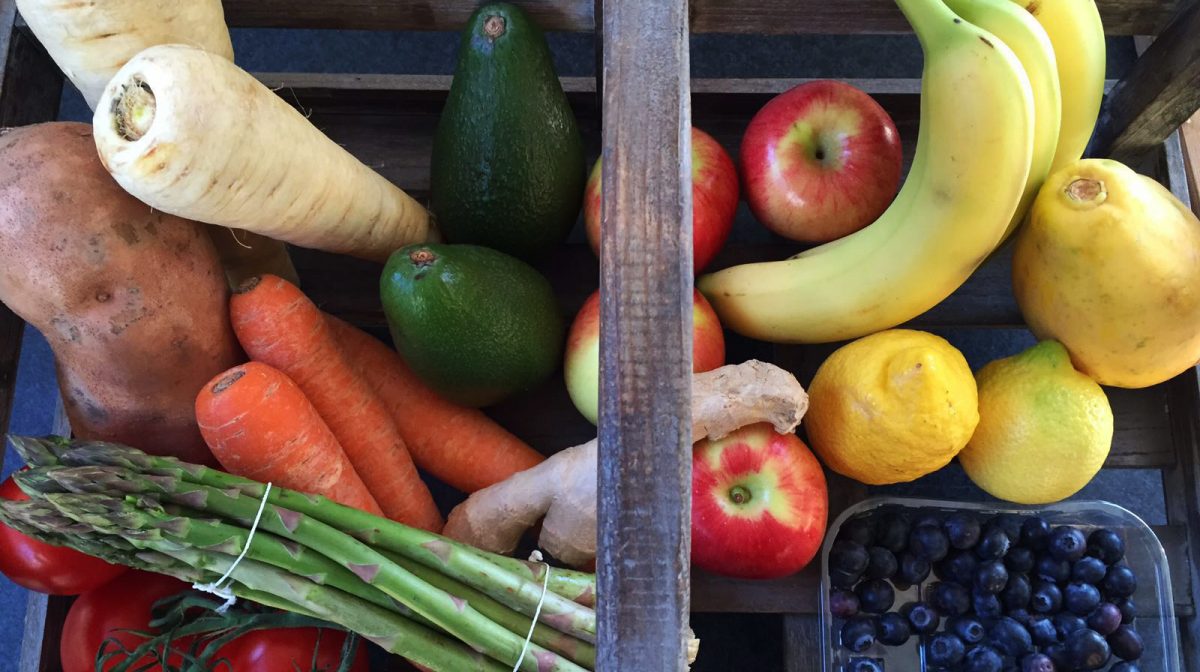Everyday wisdom is often stubbornly persistent, especially when it comes to nutrition. Nutritionist Paolo Colombani examined for FIT for LIFE 15 nutrition myths that could interest athletes and determined which are TRUTH or MYTH.
WINE EXTENDS LIFE SPAN
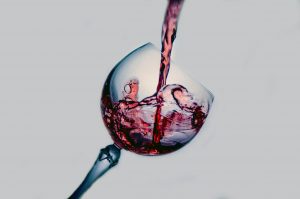
TRUTH
The winegrowers like to hear it: wine is said to be good for the heart. This is true to a large extent and is considered an explanation for the so-called “French paradox”, which is actually no paradox at all. In the 1980s, researchers in France observed a low incidence of fatal heart disease, although the French ate a lot of saturated fat. This seemed paradoxical, as saturated fat was then considered a major cause of heart disease. The supposed explanation: the high consumption of wine. Because already at that time one suspected a protecting effect of alcohol against heart diseases. However, the paradox did not only occur in France, but also in many other countries. So it was not a paradox at all and would not have required an explanation. But it did increase research on wine and alcohol. And today we know: With much or no alcohol (and not only wine) the risk of premature death is increased. On the other hand, the amount at which one sees the least danger is about two to three glasses of alcohol a day for men, and one to two for women. This also applies to athletes.
ANIMAL FAT IS UNHEALTHY
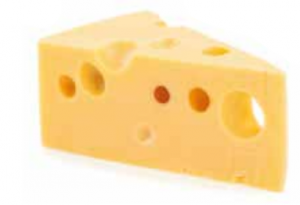
MYTH
The myth of unhealthy animal fat has been around for a very long time and that is why it is not refuted so quickly. One reason sighted again and again is, animal fat contains large amounts of saturated fat and this promotes cardiovascular diseases. However, this connection could never be proven and the current state of research clearly shows: There is no major risk or connection for cardiovascular diseases depending on the consumption of saturated fat. And quite independently of saturated or animal fat, no nutrient or food is per se healthy or unhealthy. The effect on humans is always a question of the quantity and above all the frequency with which we eat or drink something.
THE MORE VITAMINS, THE BETTER
MYTH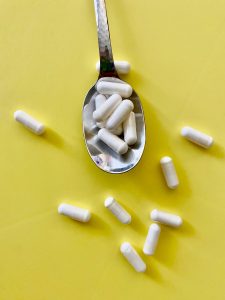
No, it’s not that simple. It is quite the opposite. Vitamins have a particularly good reputation and are also extremely effective for very specific deficiency diseases, such as vitamin C for scurvy. But we now know that too many vitamins can be harmful. Even the water-soluble vitamins. In recent years, an ever better understanding of vitamins has developed. In particular, there have been two unexpected findings related to the antioxidant vitamins (-carotene, C and E). Regular intake of antioxidant supplements does not lead to better health or longer life. There is even a slightly higher risk of premature death. In endurance sports, it has also been repeatedly observed that the training effects are reduced when antioxidant vitamins are taken during intense training phases. Additional vitamins should therefore only be taken in case of a deficiency and ideally in consultation with a specialist.
BREAD MAKES YOU FAT
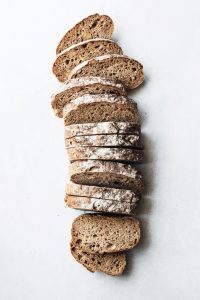
Half True
Just as no nutrient or food is healthy or unhealthy, no food or nutrient makes you fat in general. But: bread contains a decent amount of carbohydrates (about 40 to 50 g per 100 g of bread) and can therefore have a significant impact on weight management. Carbohydrates and fats are a constant point of contention, especially when it comes to weight management. There is no doubt that carbohydrates have an essential property: they provide energy for the muscles. This makes them ideal for any sport that requires regular and decent muscle work. On the other hand, they can be problematic if we do not exercise our muscles regularly. In addition, especially for less active individuals, fat metabolism is reduced from a moderate intake of carbohydrates. Thus, carbohydrates can help people who are not very active to keep fat reserves in the body and not to break them down. And since bread contains decent carbohydrates…
RAW VEGETABLES ARE HEALTHIER THAN COOKED
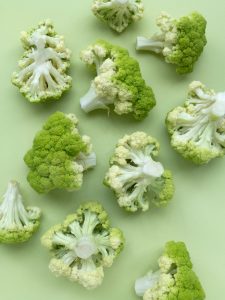
Neither nor
Right and wrong at the same time. There are so many different vegetables with different compositions of nutrients that it is impossible to make a general statement. Moreover, the different cooking methods have different effects on the nutrients, but also on the physical structure of the vegetables. Heat can destroy individual vitamins and also secondary plant substances such as phenols to a considerable extent. However, this does not apply to all of these substances, and the extent of this varies from substance to substance. One thing is certain: heat weakens the cells in the vegetables and the nutrients can thus be more easily absorbed and released. Heat is therefore neither generally good nor bad. It is much more important to eat vegetables at all than to eat them raw or cooked. Three handfuls per day should be consumed, also for athletes. Important for athletes: Vegetables should be put on the plate as soon as possible after and not immediately before exercise. Otherwise you risk gastrointestinal problems during exercise due to the relatively long digestion time.
LIGHT PRODUCTS ARE LOW-FAT
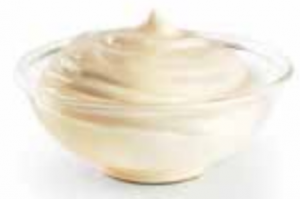
MYTH
Light products can, but do not have to be low-fat. The designation “light” in a food product has nothing directly to do with the fat content and is regulated by law. The corresponding regulation on the labeling and promotion of foods states: “A claim that the content of one or more nutrients has been reduced (or the food bears the designation light) is only permissible if the reduction in content is at least 30 percent compared to a comparable product”. If light is used in relation to the fat content, this means that the light variant must contain at least 30 percent less fat than the non-light variant. A mayonnaise contains around 80 grams of fat per 100 grams, so a mayonnaise light must contain at least 30 percent less fat, i.e. a maximum of 56 grams. That is significantly less, but it is far from being low-fat!
MARGARINE IS HEALTHIER THAN BUTTER
MYTH
Wrong. Margarine is usually made from vegetable oils. For a long time the oils for it were hardened and it developed the so-called industrial trans-fats, which increase the danger for heart diseases already in small quantities. Today this is fortunately no longer a problem, since the content of trans fats in vegetable oils is regulated by law. But there is no reason why margarine should be more sensible than butter. Whoever likes butter should use it in the kitchen with common sense, without having a guilty conscience. This also applies to athletes, of course.
COFFEE EXTRACTS WATER FROM THE BODY

MYTH
The earliest studies on the seemingly dehydrating effect of caffeine date back to the 1920s. Even back then, it was concluded that coffee is not diuretic if you look at the amount of urine throughout the day. And already about ten years ago, the totality of all research was summed up as follows: Regular coffee or tea drinkers do not experience any diuretic effect of caffeine; when abstaining from coffee and tea for at least several days, several cups of coffee or tea lead to a short-term increase in the amount of urine. But this increase disappears again as soon as you drink coffee or tea regularly. Therefore, the statement that coffee extracts water from the body is wrong in the long run.
PEOPLE NEED TWO LITERS OF WATER A DAY
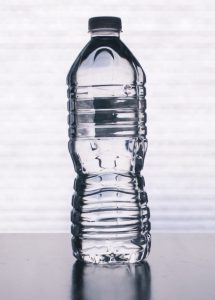
Half True
This is partially correct. People need water. But the amount depends on many factors. A light woman needs less than a heavy man, a physically active person needs more than a person who is sedentary, in high temperatures you need more than in cool temperatures. The minimum quantity should be about one liter of fluid per day at moderate ambient temperature, low physical activity and low body weight. By the way, half a liter comes from solid food in a varied diet. The other extreme is with very long periods of endurance stress. Here we can expect an average of half a liter per hour. In the humid heat this amount can increase considerably, in the dry coolness it can decrease. Those who move little and stay at pleasant temperatures can make ends meet by drinking one to two liters daily.
CITRUS FRUITS PROTECT AGAINST COLDS
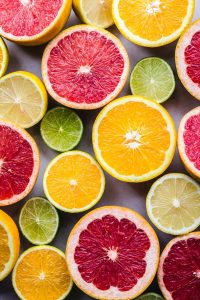
MYTH
Unfortunately no. Already about 60 years ago there was a corresponding investigation. Certain substances in citrus fruits, the flavonoids, should have improved the supposed effect of vitamin C against the cold viruses. But the conclusion was already then: zero effect of flavonoids or vitamin C against the clinical symptoms of the common cold. This situation has hardly changed until today. In the general population no effect of vitamin C is seen against colds. Only after a 90-km run was there a slight decrease in the incidence of colds if vitamin C was supplemented before the run. On the other hand, colds after a marathon run even lasted a little longer than normal if vitamin C was supplemented before the run. Considering that regular intake of antioxidative vitamins (including vitamin C) can lead to a suppression of the training effects in endurance sports, it is better to avoid vitamin C as a prevention against colds and simply eat a varied diet.
SALT INCREASES BLOOD PRESSURE
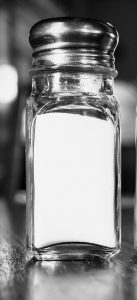
Controversial
Some say yes, others say no. When it comes to salt, there is a deep ditch in the research community. The health authorities have one opinion: blood pressure is linked to salt consumption and this should be reduced as much as possible. Because high blood pressure is a risk factor for cardiovascular diseases. On the other hand, there are researchers who observe the same situation as with alcohol: Too much, but also too little salt increases the risk of premature death. In this so-called J-context, it is important to identify the amount of nutrient or food that is associated with the lowest risk. According to one research community, this lies between 7 and 12g of salt daily. Other researchers, including health authorities, recommend 5g or less. This discourse is less relevant for sports. The motto is rather: Don’t be too modest with salt! Because salt is lost in decent quantities through sweat and must be replaced accordingly. If you exercise and sweat enough, you don’t have to count every grain of salt. And in the case of very long endurance events (e.g. Ironman), it is even necessary to replace at least part of the salt lost during the competition with salty food or drinks.
MAGNESIUM PROTECTS AGAINST CRAMPS

MYTH
Most likely not. The statement that magnesium protects against muscle cramps is not permitted by law, even as a so-called health-related statement for foods and dietary supplements. Stress-related muscle cramps are not a myth, but a little mysterious. A magnesium deficiency seems unlikely to be the cause. The reason: magnesium is involved in several hundred metabolic reactions. Therefore in the event of a deficiency, problems would occur in a wide variety of places, and not only in the contraction of muscles during certain situations. General overloading of the musculature (towards the end of an exhausting endurance effort, for example), cold or increased fluid loss are discussed as possible causes for cramps. Current research suggests that the central nervous system plays a role in the development of stress-related cramps. But in the end, the situation is sobering: we do not know exactly what triggers the cramps – and it is correspondingly unclear what really helps against them.
SAUSAGES CAUSE CANCER
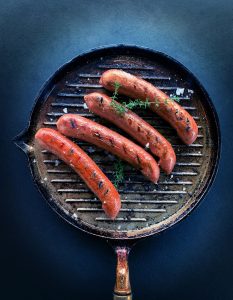
Half True
Here there is a modest yes. People who eat 50 g of meat products such as sausages and salami every day have a slightly higher risk (18%) of developing colon cancer. However, colon cancer as a cause of death is not extremely frequent, in Switzerland it is less than 2% of all deaths. A relative increase of 18% for 50 g of meat products per day results in an absolute increase in risk of less than 0.4%. Mind you: with 50g of meat products daily. Those who eat less or only enjoy sausages on the barbecue in summer need not worry. It is also unclear whether the observed association between meat products and cancer is a real link. There are indeed speculations about possible biochemical reasons for such a connection. But these are anything but certain. In any case, those who exercise enough have a lower risk of developing colon cancer. Therefore, the sausage cancer story in sports is hardly worth mentioning.
ORGANIC FOOD IS HEALTHIER
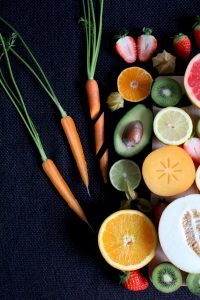
MYTH
No. Organic food is primarily about the way the food was produced, regardless of whether it is of plant or animal origin. The production should be as sustainable as possible and protect nature as much as possible. A measurable effect on the content of the nutrients has this however hardly, apart from perhaps with the fatty acids of milk and meat. This does not mean, however, that organic food is a senseless thing. On the contrary. The benefit is simply more on the side of the environment and the well-being of the animals or plants, and not directly in the health of humans. Therefore: If organic food from the region is available and financially affordable, it is certainly a sensible choice.
EATING IN THE EVENING MAKES YOU FAT
 Half True
Half True
No. Or yes. You can choose the answer you want. If you have eaten so much before dinner that you have reached your daily calorie requirement, then eating in the evening makes you fat. But not always. Because it still depends on what you eat. And if you eat in the evening for the first time during the day, you will hardly put on any fat pads. That the food in the evening is supposed to make you fat all across the board is nonsense in any case. There are also no valid reasons for eating – or not eating – certain nutrients after a certain time of day. Unless you want to sell an appropriate diet. Anyone who regularly does a lot of sport even needs the whole day to eat enough energy and nutrients. Skipping a meal in such cases is often counterproductive and does not promote performance.

Author: Dr. Paolo Colombani, Nutrition expert Paolo Colombani puts a current topic for sport nutrition under the magnifying glass. After nearly 20 years at the ETH Zurich Paolo Colombani works as Chief Science Officer at Vegisan AG
Text from FITforLIFE– This Blog article was made available to us from the Swiss Magazine FIT for LIFE. If you want to regularly read informative articles in the field of running and endurance sports, then click here.

